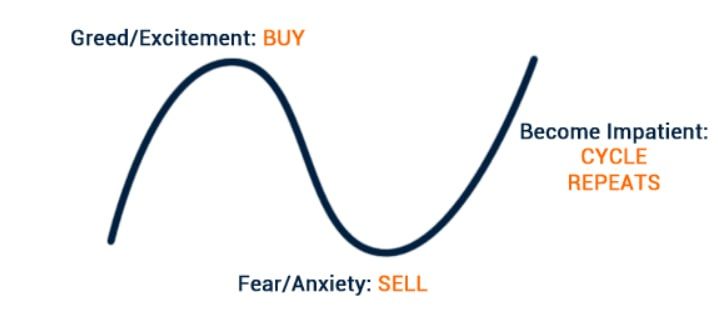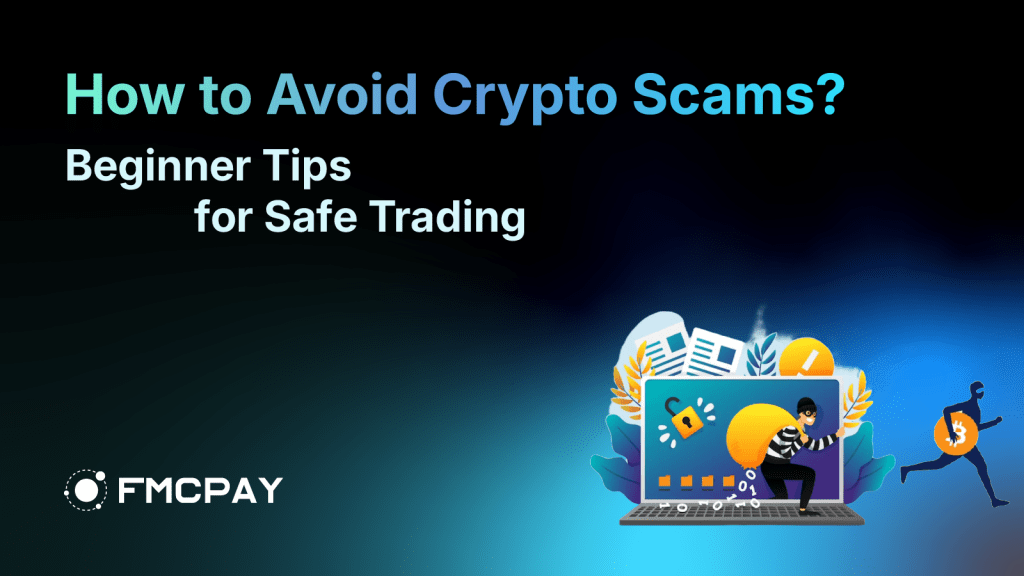Scammers are constantly devising new methods to steal money, and the rapid growth of cryptocurrency has provided them with even more opportunities. In fact, cryptocurrency crime reached a record high in 2021, with fraudsters stealing $14 billion in crypto, according to a report by blockchain data firm Chainalysis.
If you’re venturing into the world of crypto, it’s crucial to be aware of the risks. Read on to learn about common crypto scams, how to spot them, and most importantly, how to avoid crypto scams to protect your investments.
1. The Danger of Crypto Scams
The crypto market, while lucrative, is also a prime target for fraudsters due to its decentralized nature and lack of regulation. Crypto scams have resulted in billions of dollars lost by unsuspecting traders and investors. Newcomers are especially vulnerable, often unaware of the risks associated with the market.
Scammers exploit this lack of knowledge by creating fake exchanges, fraudulent tokens, and investment schemes that promise massive returns. These scams often leverage urgency and fear of missing out (FOMO) to trick people into parting with their money. Understanding the danger and scope of these scams is the first step in learning how to avoid crypto scams.
2. Key Red Flags of Common Crypto Scams
Identifying red flags is essential in learning how to avoid crypto scams. Scammers often use various tactics to lure unsuspecting investors. Below are the most common warning signs to watch out for:
2.1. Promises of Guaranteed Returns
One of the most obvious signs of a crypto scam is the promise of guaranteed high returns or risk-free returns. No legitimate investment in the cryptocurrency space can guarantee profits, especially in a market as volatile as crypto. Scammers use this tactic to lure in individuals who are eager to make quick profits without understanding the risks.
Be wary of any project that advertises unrealistic returns with little or no risk, as this is often a sign of a Ponzi scheme or other fraudulent activity. Recognizing this red flag will help you avoid crypto scams that prey on greed and impatience.
2.2. Anonymous or Fake Teams
A legitimate crypto project typically has a transparent, verifiable team behind it. However, many scams feature projects where the development team is either anonymous or uses fake profiles with unverifiable backgrounds. Scammers exploit anonymity to make it harder for investors to investigate and track them.
Before investing in any project, always check if the team members are publicly listed, have credible track records, and are active within the crypto community. Knowing how to avoid crypto scams starts with verifying the authenticity of the people behind a project. If you can’t find verifiable information about them, this could be a scam.

2.3. Pressure to Invest Quickly (Urgency Tactics)
Scammers frequently use urgency and pressure tactics to rush victims into making hasty decisions. You might encounter promotions that emphasize limited-time offers, early investment bonuses, or countdown timers. These tactics are designed to create a fear of missing out (FOMO) and force you into investing without proper research.
Always take your time and avoid rushing into any investment, as a legitimate project will not pressure you to act immediately.
2.4. Phishing and Fake Websites
Phishing scams are designed to steal your login credentials or personal information. Scammers often impersonate well-known exchanges, wallets, or service providers through fake websites or emails that mimic legitimate platforms. These phishing sites often look almost identical to the real ones, tricking users into entering sensitive details.
Being cautious of these fraudulent platforms is key to understanding how to avoid crypto scams. To not falling victim for this type of scam, always double-check URLs and only use official platforms. Be vigilant of unsolicited emails or messages, and never click on unfamiliar links.
2.5. Too Good to Be True Offers
If an investment opportunity sounds too good to be true, it probably is. Scammers frequently use unrealistic claims such as doubling or tripling your investment in a short period. These get-rich-quick schemes prey on the desire for fast profits, especially among new crypto investors.
Always approach such offers with skepticism and do thorough research before considering any investment.

2.6. Social Media Scams and Impersonations
Social media platforms like Twitter, Telegram, and Discord are often used by scammers to impersonate well-known crypto figures or influencers. They might offer fake giveaways or investment opportunities, asking you to send crypto with the promise of receiving more in return.
Be cautious of anyone asking for your funds through social media, even if the account seems legitimate. Verify the identity of individuals by checking for official verification marks or through trusted sources.
2.7. Unregistered or Unlicensed Platforms
Scammers often operate on unregistered platforms that lack regulatory oversight. Legitimate exchanges and projects are typically registered with regulatory bodies, ensuring a level of trust and accountability.
If a platform is not licensed or doesn’t provide clear information about its regulatory status, it’s a major red flag. For a secure trading experience, consider FMCPAY exchange, a fully licensed U.S.-based crypto exchange that prioritizes safety and regulatory compliance.

2.8. Rug Pull Scams
In the world of crypto, rug pull scam have become increasingly common, particularly in decentralized finance (DeFi) projects. In these scams, developers launch a new cryptocurrency or DeFi project, attract investors, and then suddenly withdraw all funds, abandoning the project. These scams often occur after raising large sums through initial coin offerings (ICOs) or liquidity pools.
These scams often occur in new or unknown projects that have not been properly audited or vetted. To know how to avoid crypto scams like rug pull, it’s essential to research the project thoroughly, check for audits, and avoid investing large amounts in unproven projects.
2.9. Ponzi and Pyramid Schemes
Ponzi schemes promise high returns to early investors using the funds of new participants. These scams collapse when there are no new participants to pay the earlier investors. Similarly, pyramid schemes rely on recruiting others to invest, with returns generated from the recruits’ investments rather than from any legitimate profit.
Both types of schemes are unsustainable and are designed to eventually implode, leaving the majority of investors at a loss.

By understanding these key red flags, you’ll be better equipped to spot scams and protect your investments. Staying vigilant and recognizing these common tactics is critical in learning how to avoid crypto scams.
3. How to Avoid Crypto Scams
Protecting yourself from crypto scams requires a proactive approach that combines research, vigilance, and secure practices. Learning how to avoid crypto scams will drastically reduce your chances of falling victim to fraud. By following the steps below, you can safeguard your assets and make informed decisions when navigating the crypto world.
3.1. Research Thoroughly Before Investing
The first and most important step in avoiding scams is thorough research. Before investing in any crypto project, token, or investment opportunity, investigate it in detail. Look for comprehensive information about the team, technology, and use case. Legitimate projects usually have transparent teams with verifiable backgrounds. Knowing how to avoid crypto scams starts with being informed.
Consult multiple sources of information when researching. Cross-check details from independent crypto communities, forums, and reputable news outlets to verify accuracy. Be cautious of projects that seem rushed or overly promoted without clear value or a solid roadmap. This level of skepticism will help you avoid falling for scams that prey on excitement.

3.2. Use Trusted Exchanges and Wallets
One of the easiest ways to avoid crypto scams is to use only trusted exchanges and wallets. Platforms like Coinbase, Binance, and Kraken have established reputations and strong security measures in place to protect users’ funds. Avoid unknown or newly launched exchanges that promise exclusive deals or extremely low fees, as these are often scams in disguise.
For added security, use hardware wallets like Ledger or Trezor, which keep your private keys offline and away from potential hackers. Using trusted platforms and wallets is a crucial step in learning how to avoid crypto scams. Avoid wallets that aren’t widely recognized or recommended by the crypto community, as they may be vulnerable to attacks or fraudulent by design.
3.3. Secure Your Personal Information
Phishing attacks are common in the crypto space, where scammers try to steal personal information like private keys or login credentials. To avoid crypto scams involving phishing, always double-check URLs before entering sensitive information and never share your private keys with anyone. Legitimate platforms will never ask for private keys or passwords.
Enable two-factor authentication (2FA) on all your crypto accounts for an extra layer of protection. Be wary of emails or messages that claim to be from official platforms—verify the source before clicking any links. By keeping your personal information secure, you significantly reduce the risk of falling victim to scams.
3.4. Be Cautious of FOMO
Scammers often use FOMO (Fear of Missing Out) to pressure potential victims into acting quickly by promoting limited-time offers or exclusive deals. This tactic is designed to make you feel like you’re missing out on an incredible opportunity, which can lead to impulsive decisions.
However, knowing how to avoid crypto scams means staying level-headed and not succumbing to this pressure. There will always be new investment opportunities in the market, so take your time to research thoroughly and verify everything before making any commitments. It’s better to miss a legitimate opportunity than to fall for a scam due to FOMO.

3.5. Verify Before Downloading Any Software
Another way scammers deceive individuals is through fraudulent crypto apps or software designed to steal funds or personal data. Before downloading any crypto-related app or software, always ensure you’re getting it from a trusted source, like the official website or a reputable app store.
Read reviews and check the developer’s background to confirm the app’s legitimacy. By taking these precautions, you’ll better understand how to avoid crypto scams that involve malicious software or apps.
3.6. Avoid Storing Private Keys on Digital Devices
The risk of being targeted by malicious software, compromised apps, and fraudulent websites is growing. Despite this, many traders still make the risky mistake of writing or taking screenshots of their crypto wallet’s private keys and saving them on computers, smartphones, or cloud storage platforms. Storing on digital devices makes them vulnerable to hacking, malware attacks, and data breaches.
To learn how to avoid crypto scams and protect your assets, always physically record your private key. Write it down on paper or in a notebook, ensuring the handwriting is legible. Store it securely in a location that is safe from both theft and environmental hazards, such as fire or water damage. This simple but crucial step can significantly enhance your asset security and reduce the risk of unauthorized access.
Related topic:
4. How to Recover Scammed Crypto?
Unfortunately, recovering scammed crypto can be challenging due to the decentralized nature of blockchain technology. However, there are steps you can take to try to recover your funds or, at the very least, prevent further damage.
4.1. Contact the Exchange or Platform
If the scam occurred on a legitimate exchange or platform, contact their support team immediately. While exchanges are not responsible for losses due to scams, they may be able to freeze the scammer’s account if the funds are still on the platform.
Some platforms also have partnerships with blockchain analytics companies that can help track down stolen funds, which could assist in the recovery process.
4.2. Report the Scam
You can also report the scam to the appropriate authorities. Depending on your country, you can file a report with agencies like the Federal Trade Commission (FTC), the Securities and Exchange Commission (SEC), or local law enforcement. Many jurisdictions have dedicated cybercrime units that deal with crypto scams.
Additionally, informing the crypto community through forums, social media, or scam alert websites can help raise awareness and prevent others from being victimized by similar scams.
4.3. Use Blockchain Analysis Tools
In some cases, blockchain analysis tools such as Chainalysis or CipherTrace can help track the movement of stolen funds. These tools analyze transaction patterns and can sometimes identify the wallets where stolen crypto has been sent.
While this doesn’t guarantee recovery, it provides valuable information for law enforcement or legal action. Familiarizing yourself with these tools is part of learning how to avoid crypto scams and responding effectively if one occurs.

4.4. Seek Legal Assistance
In certain circumstances, you may be able to take legal action against the scammers, especially if they are operating within a regulated jurisdiction. Consult with a lawyer who specializes in crypto-related cases to explore your options. Although recovery may not always be possible, legal action can help bring scammers to justice.
5. Beware If You Are Already a Victim of a Crypto Scam
If you’ve already fallen victim to a cryptocurrency scam, it may seem tempting to hire a third-party tracing company that promises to recover your stolen funds. However, be cautious, as many of these companies can lead to further fraud and more financial losses. Understanding how to avoid crypto scams includes recognizing the risks of falling into yet another scam while trying to recover your funds.
Scammers often create websites that pose as fraud recovery services, boasting impressive recovery rates and excellent reviews. These companies typically charge high upfront fees and promise to trace and recover your lost crypto. Instead of helping, these fraudsters may steal your personal information or provide inaccurate blockchain analytics.
An investor who know how to avoid crypto scams will always say “No” to such companies. If you can’t find reputable crypto recovery services, work directly with law enforcement agencies like the FBI or your state attorney general’s office.
Keep in mind that even legitimate tracing companies lack the authority to freeze or seize cryptocurrency assets, which limits their effectiveness. Therefore, it’s far safer to rely on law enforcement for any recovery efforts.
Conclusion
The cryptocurrency market is full of opportunities, but it also attracts scammers looking to take advantage of unsuspecting investors. Staying informed and applying secure practices will help you navigate the crypto world more safely. Recognizing how to avoid crypto scams is critical for protecting your funds and ensuring your trading experience is secure.
Always be skeptical of offers that seem too good to be true, and prioritize doing thorough research. Understanding how to avoid crypto scams empowers you to make smarter decisions and safeguard your investments.
To further protect your assets, choose a reliable and secure platform like FMCPAY exchange for all your crypto trading needs. Stay safe, trade smart, and ensure your funds are protected from scams with FMCPAY!

